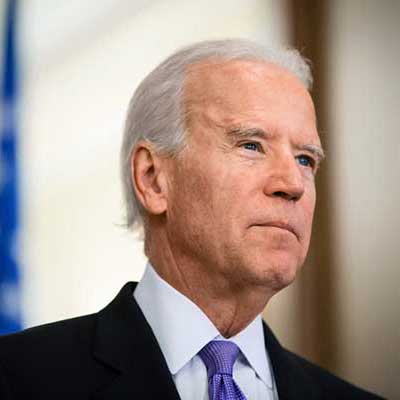A former White House staffer has alleged that the communications team of former President Joe Biden employed “really unethical” methods to manage media coverage. These tactics involved requesting pre-approved questions and exerting strict control over which quotes journalists could use following interviews with the president.
Michael LaRosa, who was press secretary for former First Lady Jill Biden, informed “The Young Turks” host Cenk Uygur that the Biden administration frequently “bullied” journalists to present the aging president more favorably.
“They did bully a lot of journalists, and I think they would tell you that now. They wouldn’t have told you at the time,” LaRosa remarked during the interview.
He clarified that Biden’s communications team, led by Anita Dunn, functioned with a siege mentality, addressing media interactions as if from a bunker and maintaining a consistently adversarial relationship with the press corps.
LaRosa expressed skepticism about the administration’s confrontational approach, pointing out that Biden initially received considerable media goodwill following the Trump presidency. He suggested that the Biden team failed to leverage this favorable starting position, instead harming what could have been a productive relationship with the press corps.
According to LaRosa, the questionable media management practices originated from Biden’s 2020 presidential campaign and persisted throughout his presidency. One particularly troubling tactic was “quote approval,” where a designated person on Biden’s team determined “what the reporter can use, what quotes they can use” after any interview with the president.
The former press aide described how junior staffers were systematically trained to manage media interactions, including guiding reporters on which questions to ask and requiring journalists to submit their questions before interviews.
LaRosa cited an incident from the summer of 2024 when Biden staffers were found attempting to provide pre-written questions to radio journalists. He compared this to similar tactics he observed during the 2020 campaign, when junior press team members in early primary states like New Hampshire, Iowa, and Nevada were systematically trained to impose restrictions on interview questions, setting preconditions for media access.
LaRosa mentioned that he avoided engaging in these practices when managing press for former First Lady Jill Biden, drawing on his experience as a former producer at NBC News.
The former White House staffer recalled advising his colleagues to avoid requesting specific questions from journalists before interviews with the former First Lady. He noted that while discussing general topics beforehand was acceptable, soliciting the actual questions was inappropriate. He expressed his discomfort with the tactics used by what he termed “the boys team” responsible for managing the president’s media interactions.
He described demanding questions in advance as unethical, emphasizing that junior staffers were systematically trained to incorporate this questionable approach into their preliminary interview screening process.
These revelations represent the first confirmation by an insider from the Biden White House of these media management practices, which had been rumored but not previously verified by administration insiders.
While these tactics aimed to control the narrative around President Biden and present him in the best possible light, LaRosa argued that they ultimately failed, particularly after Biden’s heavily criticized debate performance against Trump on June 27, 2024, which raised concerns about the president’s mental acuity.
LaRosa reflected that during his four-year tenure, particularly in the summer of 2024, he recognized the administration’s media relations team’s fundamentally flawed instincts and how their approach ultimately undermined the president’s interests.
He maintained that their combative and restrictive strategy toward the press corps produced the opposite of its intended effect, actively harming Biden’s public standing rather than enhancing it. According to LaRosa, despite the aggressive tactics employed against journalists covering the president, Biden’s media coverage consistently worsened instead of improving.
The former press secretary asserted that this approach did not benefit the administration, as the president’s reputation, public image, trustworthiness ratings, and approval numbers remained stagnant or declined throughout his term, with no periods of positive media coverage materializing. LaRosa attributed part of this failure to the fact that the administration had “burnt and just carpet bombed his relationships with members of the press whom he cared about,” reported the New York Post.
The White House’s media controls reportedly extended beyond press interactions with the president. According to a separate media report, cabinet officials’ questions for Biden during rare meetings were also screened in advance, with aides “going over questions and carefully choreographing” the interactions.
These revelations emerge amid broader concerns about Biden’s cognitive state during his presidency. The New York Post recently reported that dozens of executive orders bearing Biden’s signature appeared to have been signed using an autopen device, raising questions about whether the former president was fully aware of the documents he was approving.
Missouri Attorney General Andrew Bailey has called for an investigation into whether Biden’s cognitive decline may have allowed unelected staff to implement policies without his complete understanding or approval.
LaRosa’s comments reflect a growing trend of former Biden administration officials speaking out about internal practices following the end of his presidency. Earlier this year, Politico reported on friction between former White House aides and current staffers who had been more willing to voice disagreements with administration policies, sometimes anonymously, indicating a generational divide in approaches to loyalty within the executive branch.

